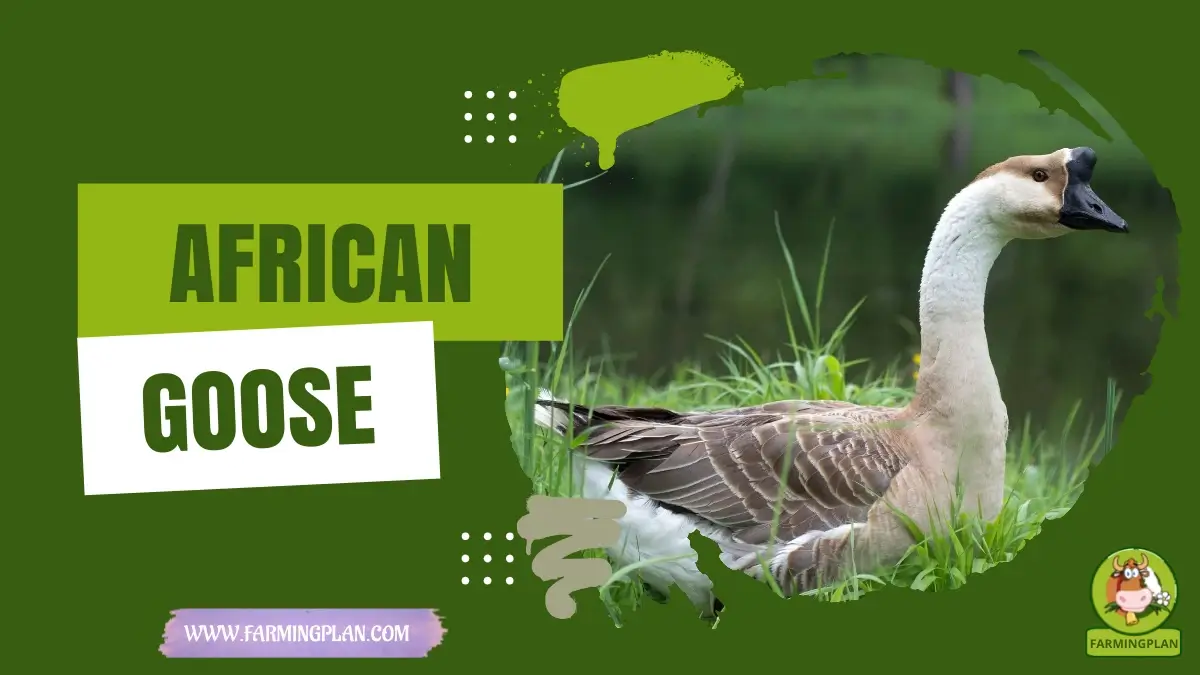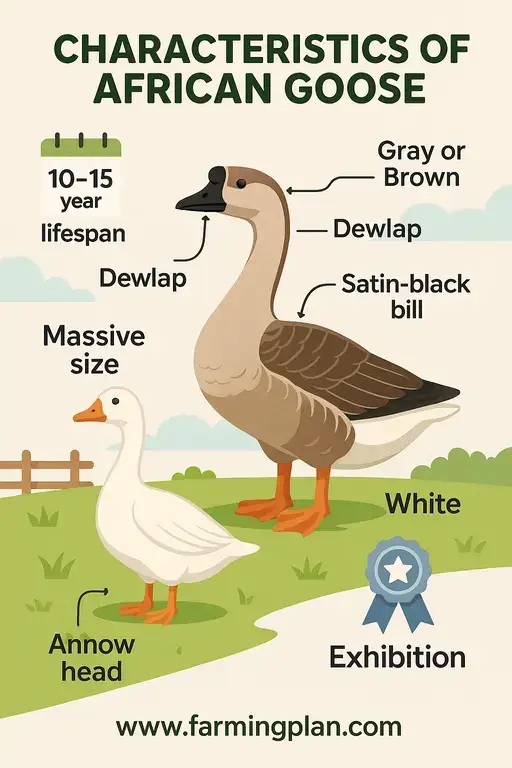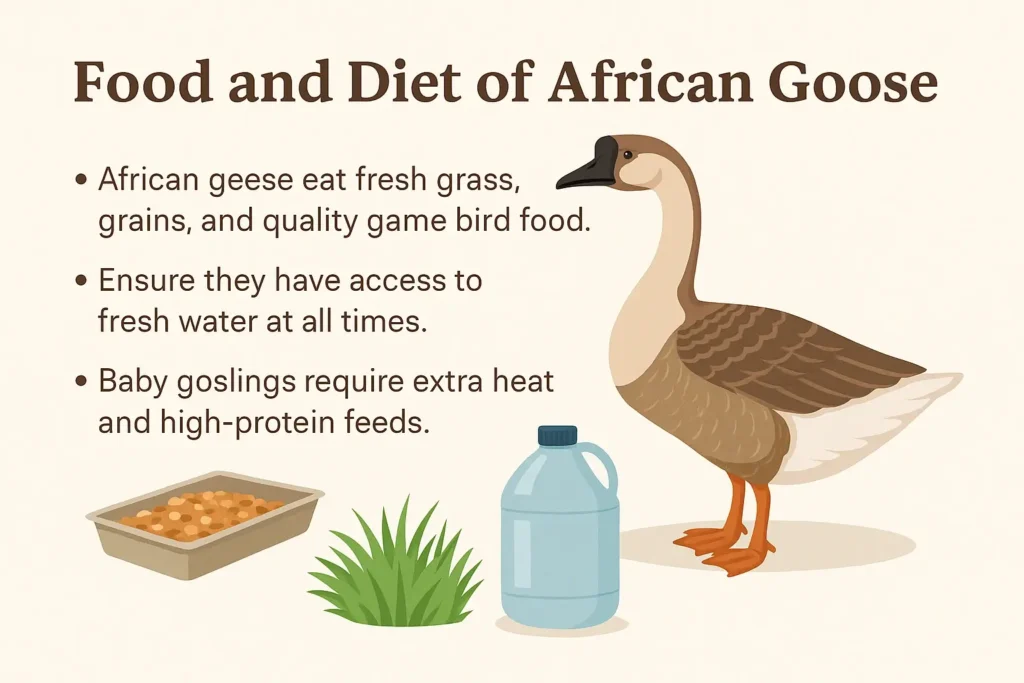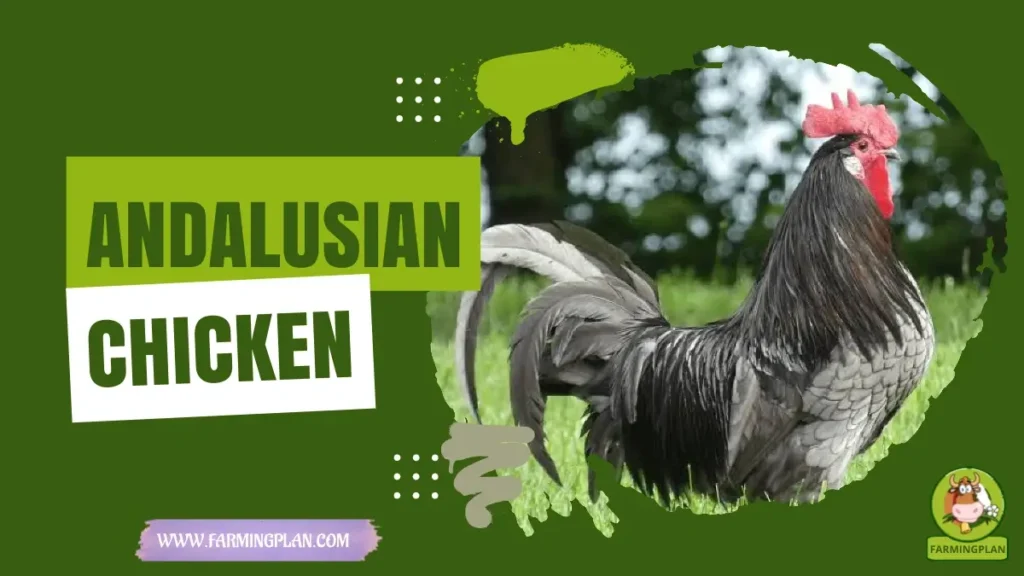The African Goose is one of the most beautiful and fascinating domestic goose breeds you can find today. Known for its massive body, calm temperament, and unique black knob on its forehead, the African Goose is loved by pet owners, farmers, and breeders alike. This beautiful Goose stands out because of its size, graceful white plumage, and variety, including shades like gray, brown, and white. Unlike the Chinese Goose, the African Goose is heavier and often has a more pronounced dewlap under its chin. Whether you are looking for a loyal farm helper, a gentle pet, or a showbird, African geese make a perfect choice for many.

History & Origin of African Goose

The African Goose has a rich and fascinating history that sets it apart from domestic goose breeds. Historical studies suggest the African goose shares strong roots with the wild swan goose. It was first domesticated centuries ago and became popular around the late 1700s. Many people believe it is closely related to the Chinese Goose because of its forehead knob and elegant posture. Still, the African Goose is heavier and has a different body shape, a testament to its unique journey through time.
Selective breeding played a significant role in developing today’s African Goose. Breeders focused on creating a larger, more massive bird with a calm, pleasant temperament and beautiful plumage patterns. Over time, these geese were introduced to different parts of the world, where they became valuable for their meat, beauty, and role as guard geese on farms. The African Goose has two main color varieties—Gray or Brown and White—both admired for their unique charm and strong bodies. Today, they are one of the most popular and beautiful birds raised by hobbyists, farmers, and pet lovers across the globe.
Read More: Pros and Cons of Raising Geese: The Ultimate Guide
Characteristics of African Goose

The African Goose, with proper care and a suitable environment, can live for 10-15 years. This lifespan is a significant commitment for potential owners and breeders, and it’s important to consider before bringing these beautiful birds into your life. The African Goose is famous for its massive size, striking features, and attractive appearance. These heavy-bodied geese are strong and sturdy, making them larger than many other domestic goose breeds. One of the most noticeable traits is the black knob on the top of their forehead. This knob becomes more prominent as the bird grows older.
African geese come in two primary color varieties: Gray or Brown and White. The Gray or Brown variety shows a combination of browns with whitish feathers along the sides and a brown head. Their body feathers can have shades of ashy brown and pinkish brown, adding to their beauty. The White variety is pure and bright, making them a favorite for many breeders.
Their orange shanks, satin-black bill, and narrow heads give them a unique, elegant look. Mature birds are heavy and have a pronounced dewlap under the chin, which looks like a soft skin flap. This dewlap, sometimes cream-colored or crescent-shaped, is a special feature of the breed. Their plumage pattern is neat and attractive, making them popular in shows and exhibitions. Show-type African geese tend to be larger and more massive, while some farm-raised geese are a bit lighter. Whether you choose the colored or White variety, every African Goose is a stunning and powerful bird.
“Raising African Geese Is Not Just A Hobby, It’s A Rewarding Journey Full Of Beauty And Utility!”
Nature & Temperament of African Goose
The African Goose is known for its calm temperament and pleasant nature, making it a favorite among farmers and pet owners. These beautiful birds are generally gentle, friendly, and easy to handle, primarily when raised with human interaction from a young age. Their mild and easy-going nature makes them great companions for ducks, chickens, or even a human flock, providing a sense of reassurance and comfort to their caretakers.
Although African geese are calm, they can also be bossy girls or boys when they feel protective. They are often used as guard geese because their loud honking can scare away unwanted visitors and predators. Despite being loud birds at times, their natural behavior is not aggressive. Most mature geese become very loveable and attached to their caretakers.
A warm, safe environment and a protein-rich diet are essential when raising African goslings. They can be gradually introduced to grass and tender plants as they grow. With proper care and attention, African goslings grow into pleasant birds with calm temperaments, perfect for farms, backyards, or small homesteads.
Food & Diet of African Goose
Feeding the Goose properly is the key to raising healthy and happy birds. These heavy-bodied geese need a balanced diet that supports their growth, strong bodies, and calm temperaments. In addition to fresh grass and tender plants, African geese should be fed high-quality game bird food that provides essential nutrients. You can also offer birdseed mixtures that include grains like corn, wheat, and oats.

It is essential to provide clean, fresh water daily. African geese drink several gallons of water daily, and water exposure speeds up their digestion. Keeping containers of water-based around their eating areas helps a lot. Temperature water is best, especially during colder months.
Baby goslings need extra heat and special starter feeds rich in protein. Around 2-3 weeks of age, they can slowly start eating grass and tender plants. African goslings grow stronger by 3-5 weeks and require more solid foods. Feeding loveable goslings a combination of grains and greens helps them become healthy, mature birds. Avoid giving them spoiled, processed human food or anything that might upset their stomachs. Your African Goose will stay strong, active, and full of life with the right mix of fresh greens, grains, and clean water.
Usage & Purpose of African Goose
The African Goose is a valuable breed with many wonderful uses. One of their primary purposes is to provide lean meat. These heavy birds grow quickly and develop high-quality, lean meat that many farmers and families love. A roasting goose from an African Goose can be a delicious centerpiece for special meals. African geese also make excellent guard geese. Their loud voices and strong presence can protect a flock of ducks, chickens, or even a farm from unwanted visitors. Their loud honking warns the flock and the owner about danger, making them natural security birds.
Many breeders raise African geese for show purposes. Their massive size, satin-black bill, orange shanks, and beautiful plumage patterns make them stand out in exhibitions. Whether it is the brownish-orange of the Gray or Brown variety or the pure white plumage of the White variety, both types are popular in shows. Because of their calm and docile temperament, African geese are also chosen as pets. They are beautiful girls and boys who bond with their owners, becoming part of the human flock. Whether for farming, meat, security, or companionship, the African Goose is truly a remarkable and versatile breed of Goose.
Special Features
The African Goose has many special features that stand out from other domestic goose breeds. One of the most noticeable traits is the large, black forehead knob. This knob becomes bigger and more impressive as the Goose matures. It gives the bird a bold and unique look that many people admire. Another rare feature is their pronounced dewlap. This soft flap of skin under the chin can be crescent-shaped or cream-colored. It adds to their firm and heavy appearance. Combining browns in their Gray or Brown variety, satin-black bill, and orange shanks creates a stunning goose.
African geese have narrow heads and sturdy necks, which give them the famous Lion Head look. Their body feathers are smooth, and their plumage pattern is neat and eye-catching. Whether you are looking at the dark orange legs or the brownish orange tones in their feathers, every part of the African Goose shows beauty and strength. They also have a calm and pleasant nature, which is rare for such a massive bird. This makes them perfect for farms, shows, and even as lovable pets. Their unique combination of size, beauty, and gentle personality makes the African Goose a true treasure among heavy-bodied geese.
Read More: Kangan Goose: Secrets to Successful
Health Issues & Prevention for African Goose
Keeping the African Goose healthy is simple when you know what to watch for. Like other domestic goose breeds, African geese can face a few common health problems if not cared for properly. One of the main issues is respiratory infections. These can happen when birds are kept in wet or dirty conditions. Always keep their living area dry, clean, and full of fresh air to prevent this. Exposure to water speeds up their digestion, but too much-wet bedding can make them sick.
Another problem is parasites like mites and lice. Regularly checking the feathers, especially around the body feathers and under the wings, can help catch these early. Dust baths and clean bedding help keep parasites away. African goslings and baby gosling birds need extra heat during the first few weeks. They can get chilled easily without a proper heat lamp or heat source, leading to slow growth or death. Continuously monitor the heat level carefully for 2–3 weeks after hatching.
Quality game bird food and clean drinking water daily keep their immune systems strong. Also, ensure they have access to water for healthy activity. Depending on their level, the water’s contents help them stay hydrated and clean. By practicing good hygiene, offering proper food, and monitoring their living space, you can keep your African Goose healthy and active for many years.
Read More: Hawaiian Goose: How To Start A Farm At Home
Step-by-Step Farming & Pet Owner Care Guide
Raising the African Goose is a rewarding experience that can provide you with beautiful birds, lean meat, and a reliable guard goose. Whether you’re a farmer, a breeder, or a pet owner, here’s a step-by-step guide to help you care for these majestic birds.
1. Set Up the Right Environment
African geese need a spacious, secure environment. For farming, ensure you have a fenced-in area with access to clean water. Even a small backyard will work for pet owners if you provide water containers for them to drink and bathe in. Make sure their living area is dry, clean, and well-ventilated.
2. Provide a Balanced Diet
African geese eat various foods, including fresh grass, grains, and high-quality game bird food. Ensure they always have access to fresh water, as they need daily gallons of drinking water. As goslings, they require high-protein starter feeds, while mature geese can enjoy a mix of grains and fresh vegetables.
3. Monitor Temperature and Heat
For goslings (baby geese), provide a heat lamp or other heat sources during the first 2-3 weeks. The temperature should be warm but not too hot. As they grow older, African geese can tolerate cooler temperatures. However, ensure they have enough shelter during winter to stay comfortable.
4. Provide Space and Exercise
African geese are large birds and need room to roam. They love to explore and graze, so ensure they can access a spacious area with plenty of fresh grass and plants to nibble on. If you’re raising them in a pen or small yard, let them out regularly for exercise.
5. Keep Them Socialized
African geese are social creatures. They thrive when part of a flock, whether a group of geese, ducks, or chickens. If you’re keeping them as pets, spend time with them daily. They will grow attached to you and be more docile, making them easier to handle.
6. Check for Health Problems Regularly
Regularly inspect your African geese for signs of illness or parasites. Clean their living space often to avoid respiratory infections. Please make sure they get plenty of fresh water and a balanced diet. If you notice anything unusual, contact a vet specializing in waterfowl or poultry.
7. Breeding and Egg Care
If you’re breeding African geese, ensure the breeding pair has a comfortable nesting area. African geese are good parents, with females laying eggs ideal for hatching. The eggs should be kept in a warm place until they hatch. Goslings need extra heat and care for the first few weeks.
Expert Tips & Best Practices
Taking care of the African Goose can be a smooth and rewarding experience when you know the best practices. Here are some expert tips to ensure your geese stay healthy, happy, and productive:
1. Provide Clean and Dry Bedding
African geese are prone to respiratory issues if kept in wet or dirty conditions. Always ensure their bedding is clean and dry. Straw or hay works well, but be sure to change it regularly. This will help prevent the growth of mold and bacteria, which can cause infections.
2. Hydration is Key
As mentioned earlier, African geese need a lot of water daily. Ensure their water containers are large enough and filled with clean, fresh water. If you live in a colder climate, check your water more frequently during winter to prevent it from freezing.
3. Monitor Their Health
Routine health checks are essential for keeping your geese in top shape. Look for signs of parasites, respiratory infections, and other common health problems. Inspect their feathers for mites and lice and check for any signs of swelling or discharge. Early detection can save you time, money, and stress.
4. Create a Safe Flock
African geese thrive in a social environment, so if you have just one, it’s a good idea to introduce it to other geese or compatible birds. They should be able to roam freely in a secure area. Avoid overcrowding, as it can lead to stress and aggression among the flock.
5. Feeding for Growth
If you raise goslings, remember that they need a higher-protein feed to grow correctly. Once they reach adulthood, you can switch them to a more balanced diet that includes grains, grass, and vegetables. Always be sure to offer them a variety of food to encourage proper growth and healthy plumage.
6. Provide Shelter During Harsh Weather
While African geese are hardy, they still need shelter from harsh weather conditions, especially during winter. Please provide them with a simple, draft-free shelter where they can take refuge during rain or extreme cold. Ensure the shelter is large enough for the entire flock to fit comfortably.
7. Respect Their Space
African geese may be docile but still large, powerful birds. Make sure you don’t invade their space too suddenly. They appreciate routine and can get stressed if their environment changes too much. Be gentle when handling them and allow time to get used to new setups.
By following these expert tips, you’ll ensure that your African Goose is healthy and help them live a happy, long life.
FAQ
What is the average lifespan of an African Goose?
African geese typically live between 10 to 15 years, with some reaching up to 20 years when provided with proper care and nutrition.
At what age do African geese start laying eggs?
African geese usually begin laying eggs around 9 to 10 months of age—their egg production peaks during the first 5 to 7 breeding seasons.
How many eggs do African geese lay annually?
On average, African geese lay 20 to 40 large white eggs annually, peaking in spring and early summer.
What is the incubation period for African goose eggs?
The incubation period for African goose eggs ranges from 28 to 34 days, with females typically incubating the eggs.
How can I tell if an African goose is male or female?
Males are generally larger and more vocal than females. The most accurate method to determine sex is through vent sexing or DNA testing.
Conclusion
The African Goose is a versatile and hardy breed, valued for its lean meat, protective nature, and striking appearance. These geese can thrive for many years with proper care, including a balanced diet, clean living conditions, and regular health monitoring. Whether raised for meat, as guard geese, or as pets, African geese offer beauty and utility to their keepers.

